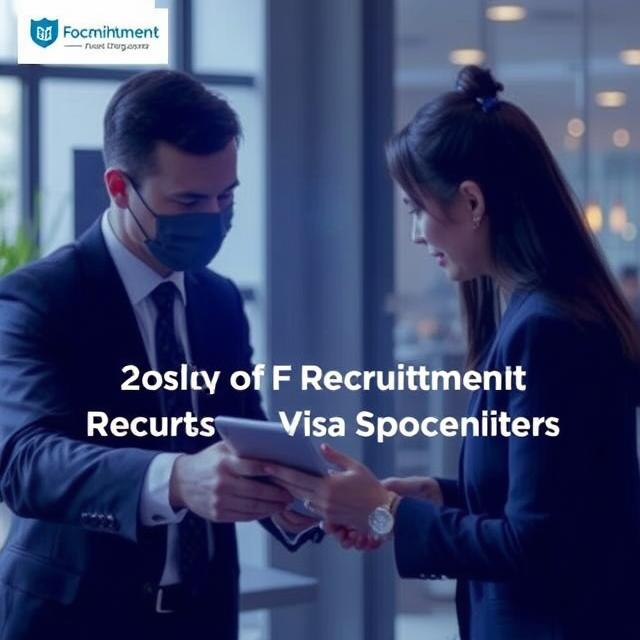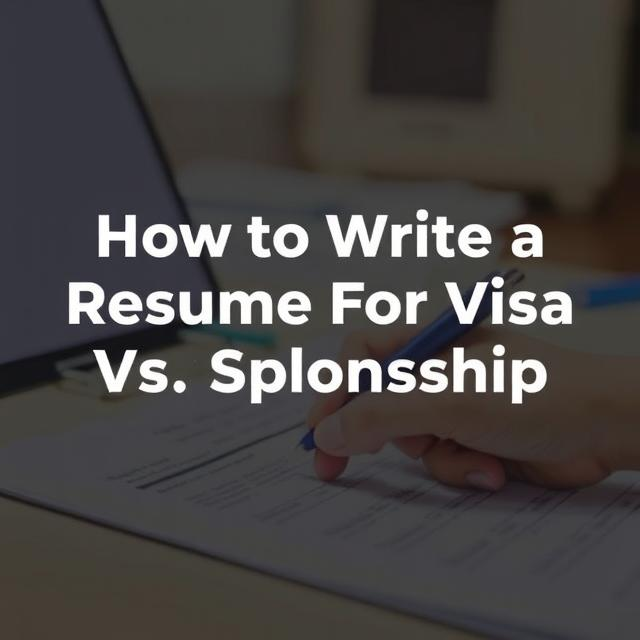Visa sponsorship can be a great opportunity for individuals seeking to work in a foreign country, but there are common challenges both applicants and employers face during the process. Understanding these challenges and knowing how to navigate them can significantly improve your chances of a successful visa application. Here are some common challenges of visa sponsorship and ways to overcome them:
1. Lengthy and Complex Process
Challenge: Visa sponsorship processes can be time-consuming and involve a lot of paperwork. Both the applicant and employer may find the process overwhelming, especially if they are not familiar with the visa application requirements for a particular country.
How to Overcome It:
- Research: Familiarize yourself with the visa application process well in advance. Understand the specific requirements for the type of visa you’re applying for and the time it might take for approval.
- Work with experts: Employers can engage immigration attorneys or visa specialists who are experienced in handling visa sponsorships. As an applicant, you can also ask your potential employer for guidance or suggest involving experts who can streamline the process.
- Plan ahead: Start your application early to account for any delays or additional documentation requests.
2. High Cost of Visa Sponsorship
Challenge: Employers may find the costs associated with visa sponsorship to be a burden, especially for smaller businesses. The cost can include filing fees, legal fees, and the potential cost of relocating employees. Similarly, applicants may face costs for medical exams, background checks, and other documentation.
How to Overcome It:
- Clear Communication: If you are the applicant, be transparent with your potential employer about the visa sponsorship costs. Demonstrate your value and how your skills will justify the investment.
- Explore Alternatives: Research visa options that might be more affordable for both parties. For instance, certain countries may have special visa categories for highly skilled workers, which may involve lower costs.
- Be Prepared to Negotiate: As a candidate, you might be able to negotiate a higher salary or benefits package to offset the visa costs.
3. Limited Number of Visas Available
Challenge: Some countries have a limited quota for certain types of work visas (e.g., the H-1B visa in the US), meaning that applicants may face stiff competition. This can make it harder for applicants to secure visa sponsorship if the quotas are full.
How to Overcome It:
- Apply Early: For countries with visa caps, it’s crucial to apply as early as possible. For example, the US H-1B lottery often opens on April 1st each year, and early applications increase the chances of getting selected.
- Target Employers with High Visa Success Rates: Certain companies, especially large corporations in industries like tech, healthcare, and engineering, sponsor numerous visas and have a strong track record of success. These employers are more likely to navigate the process smoothly and successfully.
- Consider Alternative Pathways: Look into other visa categories or immigration routes, such as Permanent Residency (PR), Graduate Visas, or Intra-company Transfers, that may have fewer restrictions and a higher chance of approval.
4. Employer Reluctance to Sponsor
Challenge: Many employers may be hesitant to sponsor a visa due to the perceived risks, paperwork, and the potential for delays in the application process. Some employers may prefer to hire local candidates instead of dealing with the complexities of visa sponsorship.
How to Overcome It:
- Highlight Your Value: Demonstrate how your skills, experience, and expertise make you a valuable asset to the company. Show that the investment in sponsoring a visa will bring a significant return.
- Emphasize Long-Term Commitment: Employers may be more willing to sponsor a visa if they see that you are committed to staying with the company long-term. Show how your goals align with the company’s mission and future growth.
- Offer to Assist with the Process: Offer to assist with the paperwork or provide additional documentation to make the sponsorship process as smooth as possible. This can reassure employers that the process won’t be too time-consuming.
5. Risk of Denial or Delays
Challenge: The visa sponsorship application might be delayed or even denied due to various reasons, such as missing documents, failure to meet requirements, or a change in immigration policy. This is a significant concern for both employers and applicants.
How to Overcome It:
- Ensure Complete and Accurate Documentation: Both the employer and the applicant should make sure all required documents are submitted correctly. Double-check the visa application checklist to ensure nothing is missing.
- Be Prepared for Interviews: If required, prepare thoroughly for visa interviews, especially if you’re applying for a work visa or permanent residency. Practice answering questions that might be asked regarding your qualifications, the role you’re applying for, and your long-term intentions.
- Monitor Changes in Immigration Policy: Immigration laws and policies can change frequently. Stay informed about any updates or changes in visa regulations that may impact the application process.
6. Language and Cultural Barriers
Challenge: For applicants from non-English-speaking countries, language barriers may pose a challenge. Some countries require proficiency in the local language to secure a work visa, and lack of language skills may affect job performance and integration.
How to Overcome It:
- Language Training: Take language courses or language proficiency exams (e.g., IELTS, TOEFL, or Cambridge exams) to prove your skills. This will enhance your chances of securing a visa and performing well in the job.
- Cultural Adaptation: Learn about the work culture and social norms of the country you’re applying to. This will not only help you integrate but also show the employer that you’re committed to adapting to a new environment.
7. Lack of Understanding of Visa Sponsorship from Applicants
Challenge: Some candidates may not fully understand the visa sponsorship process and the responsibilities involved, which can lead to misunderstandings or frustration if things don’t go as planned.
How to Overcome It:
- Educate Yourself: Applicants should educate themselves on the types of work visas available, the requirements for each, and the potential timelines. Many governments provide resources and guidelines on visa applications, so take advantage of those.
- Be Transparent with Employers: As an applicant, be upfront about your understanding of the visa process and discuss any challenges you foresee with your potential employer. This helps manage expectations and fosters better communication.
- Prepare for the Long-Term Process: Understand that visa sponsorship is a long-term commitment and that the process may take several months. Patience and clear communication are key.
8. Post-Visa Challenges (Work-Life Balance, Housing, etc.)
Challenge: After securing a visa, applicants might face challenges in adjusting to the new country, including finding housing, dealing with cultural shock, or maintaining work-life balance in a new environment.
How to Overcome It:
- Research the Location: Before accepting a job offer, research the country, city, and its cost of living to ensure a smooth transition. Consider networking with others who have relocated to the same country to gain insights.
- Seek Employer Support: Some employers offer relocation assistance, housing support, or cultural training to help international employees adjust to their new surroundings.
- Be Proactive in Seeking Help: If you’re facing issues adjusting to the new country or job, don’t hesitate to reach out for support. Many expat communities and international organizations offer resources to help with integration.






